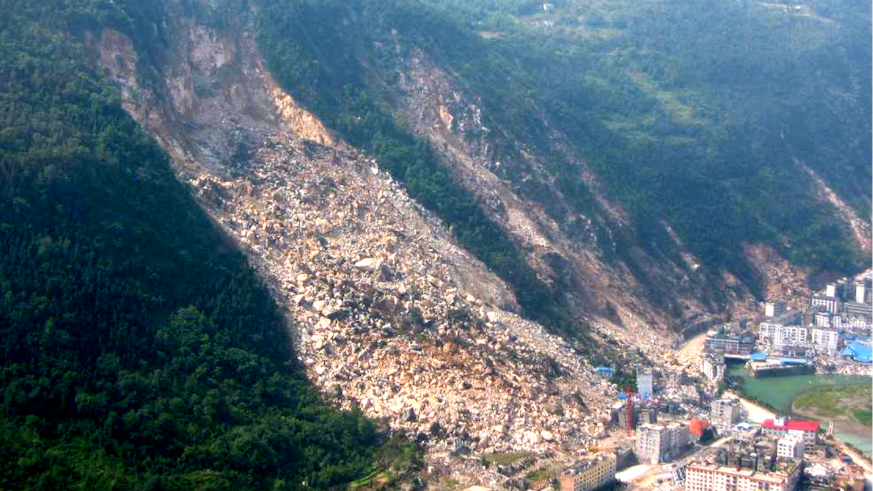New collaboration to study after effects of major earthquakes
14 December 2015

Understanding how communities recover from landslides associated with large earthquakes will be the subject of a new NERC-funded collaboration between Cardiff University’s Sustainable Places Research Institute and the Chengdu Institute of Technology-State Key Laboratory of Geohazard Prevention and Geoenvironment Protection.
Landslides continue to happen for many years after large earthquakes and continue to affect communities trying to recover from disaster. The ability for communities to "bounce back" from major disasters is essential for poverty alleviation and economic development. Termed "disaster resilience", this process is of particular importance in China as rapid economic expansion and urbanization has increased Chinese susceptibility to major disasters, including the 2008 Wenchuan Earthquake.
“The newly funded research work will allow us to focus on understanding the mechanisms controlling where and when landslides occur after earthquakes and the processes that cause landslides to jeopardise recovery,” said Dr. T.C. Hales, Research lead from the School of Earth and Environmental Sciences.
Using and improving the large landslide databases created after the Wenchuan Earthquake the Research Team will home in on hazard maps to investigate the role of particular storms and aftershocks in creating landslides and use local census data to understand social vulnerability. Combining these approaches the Team hope to understand the physical and social mechanisms driving resilience in this area.